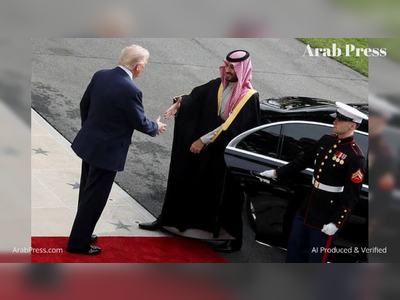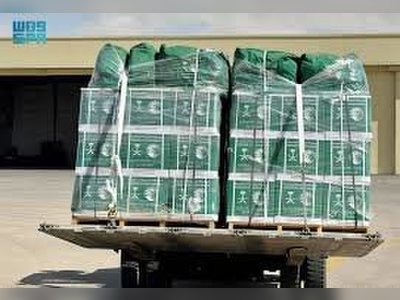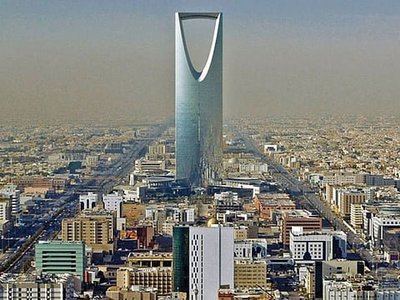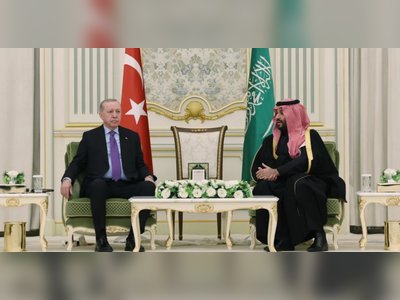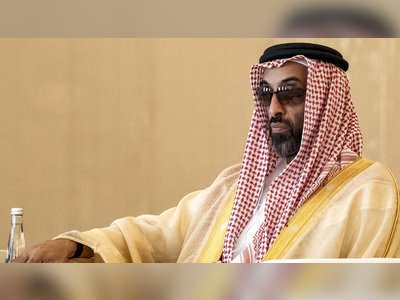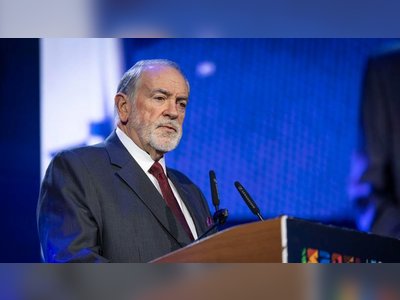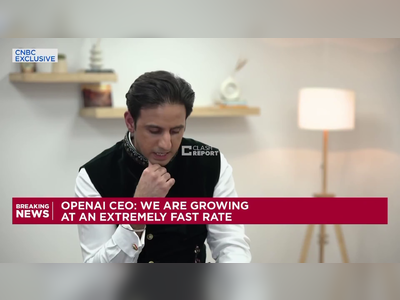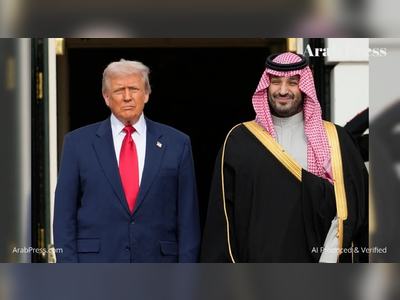
How has coronavirus impacted GCC family offices?
Recent survey says 90% of family firms have seen negative impact to their businesses as a result of Covid-19
Family led businesses have a long-standing history across the GCC. Family offices are both pioneers and a key pillar of the economy, accounting for a large segment of the region’s non-oil gross domestic product.
According to PWC, family businesses are especially important across the Middle East and contribute 60% to its GDP and employ over 80% of the work force.
In the midst of the global pandemic, media consumption significantly increased, Netflix subscriptions were up 15.8 million at the start of the pandemic. I too spent more time than ever consuming content to keep going throughout lockdown.
As a result, one of the key shows which I watched was HBO’s Succession, and as Francois Botha aptly summaries the series allowed us to think about the importance of “dealing with engagement, succession and communication appropriately, while also ensuring that your family office has a greater purpose”.
Although there is now a sense of normalcy here in the UAE, the international response to Covid-19 continues to develop, the challenges and layers of complexities across sectors and geographies continue to unravel.
A Harvard Business Review survey noted globally that nearly 90 percent of family firms have seen negative impact to their businesses as a result of Covid-19.
Given the current economic and financial challenges brought on by the global pandemic across the Gulf economies and beyond, family businesses are typically agile and able to approach the given challenges on a strong footing by being able to adapt to these changes.
However, prior to the pandemic family offices were already in a state of consolidation and reviewing their existing investment mandates. According to the Global Family Office Report 2019 from UBS and Campden Wealth Research, 55 percent of family offices were expecting a market downturn in 2020 and half had begun shifting their investment strategies to reduce risk.
With the outbreak of Covid-19, their concerns and actions have been validated, and their preparation was therefore not futile. Despite the preparation, most family offices’ operations were not entirely protected from the market fallout nor the impact of the pandemic.
As we try to navigate through the “new normal” family offices continue to unravel effect of Covid-19 and will continue to do so for the foreseeable future.
Through discussions across our network as well partaking in a virtual panel hosted by Pearl Initiative and the Tharawat Family Business Forum where we explored Family Governance in Times of Crisis, I noted three key trends that have come to surface even more so for family offices across the GCC:
1. Innovation in flexible/remote working
According to an article publish by the Tharawat Family Business Forum, Hisham Farouk of Grant Thornton highlighted the need for family offices to invest in infrastructure to enable remote working.
“A framework that facilitates working remotely with obvious considerations given to server access and security will stay relevant long into the future.” There will likely be a paradigm shift in the notion that to be productive, you must be physically in the same office.
There is of course a real benefit from having face-to-face meetings, however even prior to Covid-19, the reality of travel schedules for family members and trusted advisors located globally this was harder to achieve. More single-family offices will slowly shift to a hybrid-family office model with the resurgence of outsourcing and growing acceptance of a talented remote workforce.
2. Use of Artificial Intelligence
From a UBS survey, 87 percent of family office respondents agree that artificial intelligence (AI) will be the biggest disruptive force in global business. AI, when its capabilities are fully realized, can perform tasks at greater speed and efficiency than humans.
While that may sound unnerving to some, the key is to look at how AI can free up human time to focus on higher-value, client-facing activity. As forward-thinking firms will employ the latest technology to maximize efficiency, family offices that want to stay ahead of the curve will follow suit and to ensure they are well versed in the realm of AI.
3. Growing popularity in Impact Investing
Furthermore, another UBS report noted that UAE investors are very active in philanthropy, with 92 percent saying they believe it is their responsibility to give back, and that making an impact is more significant than having money, there is now a growing focus of Impact across the region.
As highlighted by Empaxis, investors in the region are far more engaged in sustainable and impact investing, these investors predict that within the next five years (2019 to 2024), one-third and one-fourth of the average family office portfolios will consist of sustainable and impact investments, respectively.
Family offices are divesting funds from traditional sectors, and investing in food security, agriculture, alternative energy and climate change.
Irrespective of the pandemic, some trends will continue for Family Offices. To note the rise in direct investing, impact investing, and use of AI were well under way before Covid-19, and there is little reason to suggest it stops now.
The same goes for succession planning issues and rising operational costs. They existed before, and they will still exist. but with proper governance, planning and action, the problems and risks can be mitigated.
As HBO’s Succession, highlights with key structures in place, families can align behind one vision to pull the rope in the same direction to preserve wealth and assets for generations to come, whilst they continue to maintain their family legacy.
According to PWC, family businesses are especially important across the Middle East and contribute 60% to its GDP and employ over 80% of the work force.
In the midst of the global pandemic, media consumption significantly increased, Netflix subscriptions were up 15.8 million at the start of the pandemic. I too spent more time than ever consuming content to keep going throughout lockdown.
As a result, one of the key shows which I watched was HBO’s Succession, and as Francois Botha aptly summaries the series allowed us to think about the importance of “dealing with engagement, succession and communication appropriately, while also ensuring that your family office has a greater purpose”.
Although there is now a sense of normalcy here in the UAE, the international response to Covid-19 continues to develop, the challenges and layers of complexities across sectors and geographies continue to unravel.
A Harvard Business Review survey noted globally that nearly 90 percent of family firms have seen negative impact to their businesses as a result of Covid-19.
Given the current economic and financial challenges brought on by the global pandemic across the Gulf economies and beyond, family businesses are typically agile and able to approach the given challenges on a strong footing by being able to adapt to these changes.
However, prior to the pandemic family offices were already in a state of consolidation and reviewing their existing investment mandates. According to the Global Family Office Report 2019 from UBS and Campden Wealth Research, 55 percent of family offices were expecting a market downturn in 2020 and half had begun shifting their investment strategies to reduce risk.
With the outbreak of Covid-19, their concerns and actions have been validated, and their preparation was therefore not futile. Despite the preparation, most family offices’ operations were not entirely protected from the market fallout nor the impact of the pandemic.
As we try to navigate through the “new normal” family offices continue to unravel effect of Covid-19 and will continue to do so for the foreseeable future.
Through discussions across our network as well partaking in a virtual panel hosted by Pearl Initiative and the Tharawat Family Business Forum where we explored Family Governance in Times of Crisis, I noted three key trends that have come to surface even more so for family offices across the GCC:
1. Innovation in flexible/remote working
According to an article publish by the Tharawat Family Business Forum, Hisham Farouk of Grant Thornton highlighted the need for family offices to invest in infrastructure to enable remote working.
“A framework that facilitates working remotely with obvious considerations given to server access and security will stay relevant long into the future.” There will likely be a paradigm shift in the notion that to be productive, you must be physically in the same office.
There is of course a real benefit from having face-to-face meetings, however even prior to Covid-19, the reality of travel schedules for family members and trusted advisors located globally this was harder to achieve. More single-family offices will slowly shift to a hybrid-family office model with the resurgence of outsourcing and growing acceptance of a talented remote workforce.
2. Use of Artificial Intelligence
From a UBS survey, 87 percent of family office respondents agree that artificial intelligence (AI) will be the biggest disruptive force in global business. AI, when its capabilities are fully realized, can perform tasks at greater speed and efficiency than humans.
While that may sound unnerving to some, the key is to look at how AI can free up human time to focus on higher-value, client-facing activity. As forward-thinking firms will employ the latest technology to maximize efficiency, family offices that want to stay ahead of the curve will follow suit and to ensure they are well versed in the realm of AI.
3. Growing popularity in Impact Investing
Furthermore, another UBS report noted that UAE investors are very active in philanthropy, with 92 percent saying they believe it is their responsibility to give back, and that making an impact is more significant than having money, there is now a growing focus of Impact across the region.
As highlighted by Empaxis, investors in the region are far more engaged in sustainable and impact investing, these investors predict that within the next five years (2019 to 2024), one-third and one-fourth of the average family office portfolios will consist of sustainable and impact investments, respectively.
Family offices are divesting funds from traditional sectors, and investing in food security, agriculture, alternative energy and climate change.
Irrespective of the pandemic, some trends will continue for Family Offices. To note the rise in direct investing, impact investing, and use of AI were well under way before Covid-19, and there is little reason to suggest it stops now.
The same goes for succession planning issues and rising operational costs. They existed before, and they will still exist. but with proper governance, planning and action, the problems and risks can be mitigated.
As HBO’s Succession, highlights with key structures in place, families can align behind one vision to pull the rope in the same direction to preserve wealth and assets for generations to come, whilst they continue to maintain their family legacy.
